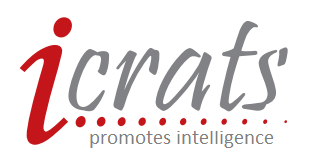Quality Assurance Testing
Software Testing Agile
Agile testing is a software testing method, just like agile software development method, which both of them follows the principles of the Agile Manifesto:
- Our highest priority is to satisfy the customer through early and continuous delivery of valuable software.
- Welcome changing requirements, even late in development. Agile processes harness change for the customer's competitive advantage.
- Deliver working software frequently, from a couple of weeks to a couple of months, with a preference to the shorter timescale.
- Business people and developers must work together daily throughout the project.
- Build projects around motivated individuals. Give them the environment and support they need, and trust them to get the job done.
- The most efficient and effective method of conveying information to and within a development team is face-to-face conversation.
- Working software is the primary measure of progress.
- Agile processes promote sustainable development. The sponsors, developers, and users should be able to maintain a constant pace indefinitely.
- Continuous attention to technical excellence and good design enhances agility.
- Simplicity--the art of maximizing the amount of work not done--is essential.
- The best architectures, requirements, and designs emerge from self-organizing teams.
- At regular intervals, the team reflects on how to become more effective, then tunes and adjusts its behavior accordingly.
The Role of a Software Tester in an Agile Environment
Nowadays, the trend of software project development is racing towards achieving targets, quality and customer satisfaction within a limited time frame. And agile methodology is one of the strategies adopted for these challenges. The following shows the agile software testing agenda during each software development phase:
- Project Initiation Phase - The test manager should be responsible for establishing the quality of process in the initiation phase. Software testers must be aware of every detail of the agile software development process.
- Software Development Phase - The software testers create test scenarios which are presented to the business analysts and project manager for their approval and signoff. These test scenarios are broken down to many test cases which offer adequate test coverage for the given functionality. In this phase, software developers and testers will work together: the developers write code which should pass the tests. There is no separate software testing phase in the software development.
- Release Phase - The goal of agile software projects is to deliver a well-working software product as quickly as possible and then pass the process of continual improvement. A final acceptance test is performed while transitioning the application into production before the software product released.
What an Agile Tester should be armed with?
Testing team has to face all the challenges presented by agile projects, such as unclear project scope, multiple iterations, minimal documentation, early and frequent testing needs, etc. All these challenges demand special and various skills from testing team:
- Resource Management - Test resource is required to define the test scenarios and test cases. The availability of professional test resources pool offers the scope for effective resource management across the agile project development life cycle.
- Communication - Good communication between the software testers, developers, managers, business analysts and project stakeholders is necessary. To keep conversation by using a combination of face-to-face meeting, phone calls, email or other online chatting meetings to make sure that all teams have a common understanding of the user requirements.
- Processes - The implementation of quality governance processes is another key success element for agile software development, for example, likes configuration management. Software project testing teams should be familiar with the best practices that are authorized by global recognized certifications like TMMI, CMMI, ISO, etc.
- Requirements Elicitation - Usually, product requirements in agile projects are captured in the form of user stories. The software testers should be smart and experienced in defining and analyzing the testing requirements while in the absence of any software product documentation.
